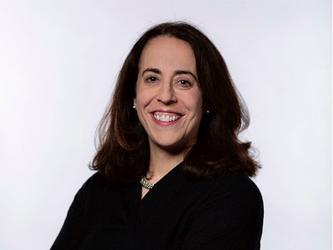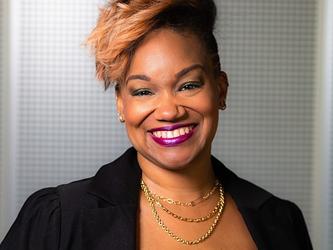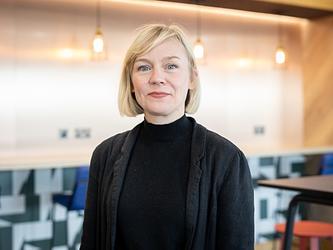Jessica DeVlieger, global CEO, C Space: ‘Insight can be a major profit generator’
How has the pandemic impacted C Space in terms of how you operate as a business?
So much of what we did before was virtual, so we were almost ready already, which was helpful for us. Generally, there were trends that I’m sure anyone in insight felt before, such as technology enabling customers to have such a big voice and the pace of change that they were requiring of companies to keep up with that. I think we were already seeing that, but it really accelerated last year.
We saw more demand for how to more quickly understand what’s going on with customers and then more effectively translate that into what it means for business.
One of the things I’ve been forever frustrated with is that insight is viewed as a cost centre instead of a profit generator, and I really think that Covid may have been the year when we can finally turn a corner and imagine that insights can be a major profit generator for organisations – if we can switch from looking in the rear-view mirror to being the headlights.
When I see my clients doing that effectively, it’s not just about answering questions, but about bringing a point of view that’s going to change the way the business sees the world and the customer. Clients that can walk that tightrope of ‘faster’ and ‘better’ within organisations are able to move the needle from saying: ‘come to me to sense check, or de-risk your work’, to ‘come to me to help guide where we go as a business in the future’.
Are you seeing insight becoming more integral to other parts of the client organisation outside of marketing?
For sure. It’s an interesting time to see where the customer ends up within organisations, because it has been owned by marketing.
I think the head of insights and head of HR almost need to be best friends. They’re both critical functions within organisations, and for so long they’ve been the function that get the question last – they’re the last port of call. In future, I’d love to imagine these groups working together, moving away from the siloes of employees and customers. A brand is an expression of the two.
Have you made any changes to the way in which you work with clients in response to the pandemic?
Our relationships with clients are probably much more dynamic than they were previously. It used to be somewhat rote – meet every week, discuss the same agenda. One of the things that’s changed is eliminating stuff that’s not valuable anymore – for example, not meeting if it’s not valuable, but creating new opportunities for connection.
Everyone’s online and you’re connected in a way that you weren’t before. We’ve got lots of remote employees, and many have said they feel more part of the team than they did before because everyone is on the same page. It’s not six people in a room and one person dialling in – instead, we’re all here.
What has worked well for the company during this time?
At the heart of what we do is online communities and online relationships, so we were virtual to begin with which was really beneficial. Having existing relationships with customers through an online community means they’ll respond really quickly to the questions you ask.
Looking forward, what are your priorities for the year ahead as global chief exec?
My biggest priority is to make my clients successful. We want to get our clients promoted, because we think they deserve a seat at the boardroom table, the customer deserves a seat at the boardroom table.
We want to be faster and better than others. We’re not trying to be the cheapest out there, because we think we can help our clients to make more money by working with the customer differently – not try and do research as cheaply as possible.
Internally, we had a real awakening during Covid and after George Floyd’s murder and Black Lives Matter. We took a hard look at ourselves and recognised that we want to be the customer agency, but we weren’t necessarily reflective of our clients’ customers.
We started a campaign called ‘We Are Here’, that included taking a hard look at ourselves and how we show up as an organisation, how we can be inclusive – not just of race but of every voice. Really great research creates a space for all voices to be heard. We’ve also taken a hard look at how we do research, including how to recruit different people with different perspectives and how to engage people in ways that aren’t just white middle-class centric.
As we help our clients navigate the future, where there’s going to be times of change, the ability to welcome and listen to diverse voices is going to be critical. We felt like it was really important to start with ourselves and take a hard look at ourselves.
Looking outside of C Space, what is the biggest challenge facing the industry in general at the moment?
How to stay relevant. How do you make sure that the work we do is still relevant when there are so many different ways to get voices in, so much data available in the world, so many ways to cut insights out? How do we ensure that we stay super relevant and a requirement for how businesses do work?
To be successful, businesses need insights. They need the human pumped into their businesses. And it’s complicated, it’s grey and it can slow things down when you do that.
What other broader industry trends are impacting agencies that you’ve noticed?
There’s so much pressure on clients to do things quickly and in order to be effective, there are times when we just need to deliver fast and get it done and figure out processes to deliver that speed. But I think it’s a really big watch-out if speed becomes the only gear we have.
I was a horseback rider growing up, and one of the first things you learn is that when your horse is running away from you, the worst thing you can do is just pull on it, you have to modulate and pull back and forth a bit. Answering the speed question by putting our foot on the accelerator and doing nothing else is never going to actually get a seat at the table. We have to modulate between speed and impact.
Speed is a hugely important part – I don’t want to write that off, and I think it’s a great way to get attention and kudos – but it just can’t be the only trick we have.
You talked about research moving from looking in the rear-view mirror to being the headlights. Are there particular approaches or technologies you’re focusing more on to help your ability to look forward and have more of that strategic foresight?
Tech is an enabler and can come in a lot of different forms. There are so many great suppliers out there that can allow us to provide a more complete set of services to our clients, without trying to do it all ourselves because we can’t – so partnerships are a big opportunity.
If I were to make a bet in terms of our own investment in tech, it’s really around data synthesis and analysis. This isn’t about us owning all the data or creating all the data but we have a lot of clients who really value our ability to synthesise.
For us to continue to do that effectively, we need to be a bit more data agnostic, or a bit more able to accommodate lots of different kinds of data that our clients have. We do a lot of work with big tech and they’ll give us tons of data and we bring the human to it in different ways – that helps them to parse out what all this data means and why people are doing this, so that they can make choices about where they want to go next.

We hope you enjoyed this article.
Research Live is published by MRS.
The Market Research Society (MRS) exists to promote and protect the research sector, showcasing how research delivers impact for businesses and government.
Members of MRS enjoy many benefits including tailoured policy guidance, discounts on training and conferences, and access to member-only content.
For example, there's an archive of winning case studies from over a decade of MRS Awards.
Find out more about the benefits of joining MRS here.














0 Comments